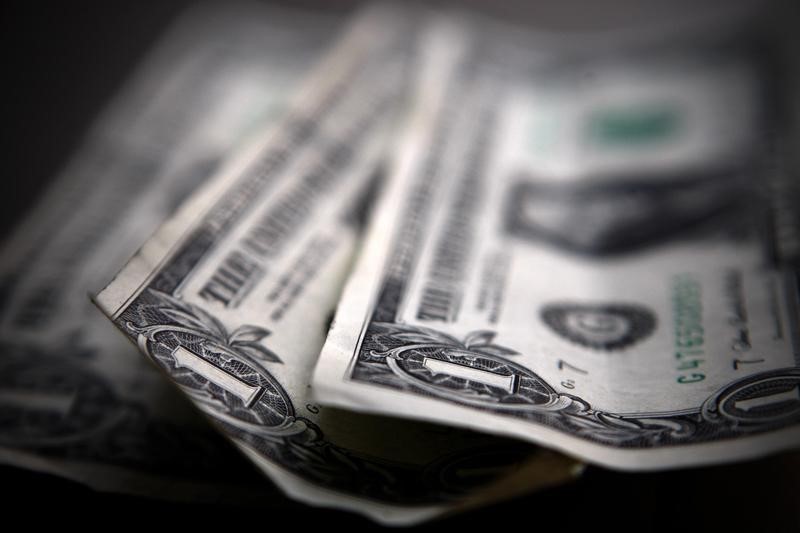Investing.com - The dollar remained broadly higher against a basket of other major currencies on Tuesday, as an almost certain default by Greece on a €1.6 billion loan repayment to the International Monetary Fund later in the day continued to support safe-haven demand.
EUR/USD dropped 0.37% to 1.1194 as Greece’s bailout program was due to expire on Tuesday and without a rescue package in place Athens would almost certainly fall into arrears on a loan repayment due to the International Monetary Fund.
A default by Greece would add to fears over the country’s solvency and fuel doubts over the condition of Greek banks and the collateral they use for European Central Bank loans.
Greece shut down its banking system on Monday, with lenders ordered to stay closed for six days, following a decision by the ECB not to extend a lifeline of emergency funding.
Earlier Tuesday, data showed that the euro zone's consumer price inflation rose by 0.2% this month, meeting forecasts and following an increase of 0.3% in May.
Core CPI, which excludes food, energy, alcohol, and tobacco costs increased by 0.8% in June, in line with expectations and down from 0.9% in May.
A separate report showed that the euro zone’s unemployment rate stood at 11.1% in May, the lowest level since March 2012, unchanged from April and in line with expectations.
The pound was steady, with GBP/USD at 1.5730.
The U.K. Office for National Statistics said on Monday that gross domestic product expanded at a rate of 0.4% in the first quarter, up from a previous estimate of 0.3% and in line with expectations.
Annualized GDP grew at a rate of 2.9% in the first quarter, up from an initial forecast of 2.4% and beating expectations for a 2.5% increase.
A separate report showed that the U.K. current account recorded a deficit of £26.5 billion in the first quarter, narrowing from a revised deficit of £28.9 billion in the fourth quarter. Economists had expected the current account deficit to narrow to £23.8 billion in the first quarter.
Elsewhere, the dollar was steady against the yen, with USD/JPY at 122.46 and higher against the Swiss franc, with USD/CHF gaining 0.56% to 0.9302.
The Australian dollar turned moderately higher, with AUD/USD up 0.16% to 0.7691, while NZD/USD tumbled 1.31% to fresh five-year lows of 0.6761.
Data earlier showed that the ANZ Business Confidence Index for New Zealand fell by 2.3% in June, after an increase of 15.7% the previous month.
A separate report showed that New Zealand's building consents were flat in May after a 0.9% slip in April, whose figure was revised from a previously estimated 1.7% decline.
Meanwhile, USD/CAD slid 0.31% to trade at 1.2368.
The U.S. dollar index, which measures the greenback’s strength against a trade-weighted basket of six major currencies, was up 0.25% at 95.31.
